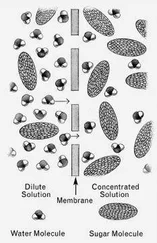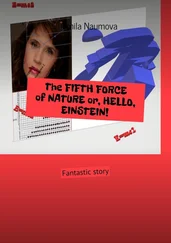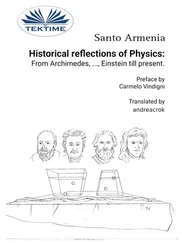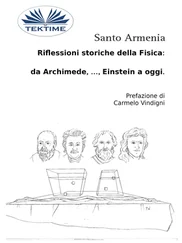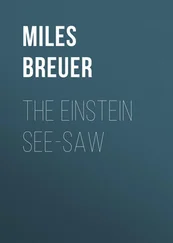Roger had placed his lapstation on the table and was comparing the figures on its small screen with the wall-size screen to his left. He nodded. “Clinton-Gore is the clear winner,” he announced. “The close congressional races are still in doubt, but there are definite indications of a coattail effect.”
Alice smiled. Since July she had spent most of her time traveling around the country to boost the local Democratic congressional candidates with strategy and funding and to defuse the “bimbo” issue, deflating Clinton’s reputation as a womanizer by spreading little jokes that had been subtly crafted by Roger to make the whole business seem ridiculous. “The miserable economy has helped Bill quite a bit,” she said. “Bush took a lot of heat over the continuing recession. He really hit the wrong part of the wave.”
“In our world,” said George, “the recession was definitely over by October, and Bush got credit for engineering the recovery. For the past four years we’ve been working to stretch out the recession. PetroGen’s increase in the production of domestic oil helped. Less foreign oil was bought, which kept the dollar higher and reduced manufactured exports. And we had some interactions with Federal Reserve people that persuaded them to keep the interest rates high, at a time when it would have been smart to lower them. I guess it worked.”
Roger looked up from his lapstation. “It’s all worked well so far,” he said, “but I think it’s going to be very close. Even if there’s a Clinton landslide this time around, it isn’t going to last very long. I’m projecting a sizable backlash in the midterm elections two years from now that will wipe out most of the Democrat coattailers and take much of the congressional establishment with them. I’m projecting that in ’94 the Republicans will take over the Senate and probably the House also. If we can’t stop the SSC in the next two years, we may not be able to stop it at all.”
“What if we don’t?” Alice asked.
“If we fail and the SSC goes forward,” said Roger, “we would have about a decade to prepare for a Hive invasion. If we resorted to sabotage of the machine, perhaps we could extend that a bit longer. In whatever time was available, we would have to introduce Reading and Writing on a broad scale. My projections continue to show that this would be very disruptive. It might cause unimaginable wars and social upheaval. Our civilization is already strained to near the breaking point by ongoing change. We’re able to absorb only so much change at a time before institutions and people begin to break down. Look what the end of the Cold War, basically a beneficial change, has done to the former Soviet states, to the former Yugoslavia, and even to the economy of Germany. We could rapidly prepare to defend ourselves against the Hive, but only with great cost in unpleasant side effects.”
George nodded. “We need more time. We have to introduce gradual changes at a rate that can be absorbed. We need several decades, not one.”
“But even if the SSC project is stopped,” Alice asked, “won’t some similar facility be built sooner or later?”
“That’s an interesting question,” said Roger. “As I think you know, the Large Hadronic Collider is now being designed at CERN and will run sometime around 2004. But its energy will be too low to make signals that would attract the Hive. We don’t think another machine is likely to be started until the physics data from the LHC operation is fully analyzed and understood. I project that the decision point for constructing the next Collider will come about the year 2015, and the earliest completion of the machine would come about a decade after that, say 2025. That scenario would give us more than three decades to prepare.”
Alice frowned. “Is that enough time?” she asked.
“We think so,” George said. “If not, when the decision point gets closer, there are things to do to stretch out the schedule. In any case, as soon as the Makers’ download and the existence of the Hive can be revealed, the consequences of building a larger Collider will become clear to everyone and the problem will go away. Then as a society we can decide, in the long run, whether we want to hide and remain inconspicuous, or whether we want to go looking for the Hive ourselves.”
Alice nodded. “What about the immediate future? What are we going to do right now?”
“George and I have spent a lot of time predicting the effects of technological change coming too fast,” said Roger. “What might happen if we destabilize the institutions that give our society its structure: religions, government, manufacturing, financial markets, educational and research institutions. Our conclusion is that we need to create institutions of our own that have the built-in stability against change.”
“What kind of institutions?” asked Alice.
“In a period of a few years,” said George, “we’ve managed to create a great deal of wealth from oil, mining, biotechnology, and judicious market investments. We can create more if necessary. So far much of our resources and attention have been concentrated on the SSC problem. But we’ve also been providing funding and guidance for scientists working in key areas that we know will lead to progress. Up to now, however, we haven’t created a basic research facility of our own.
“Now, we think, it’s time to move beyond the SSC problem. We must use our resources to create major privately funded scientific research facilities. My model is the old Bell Labs, as it existed before the AT&T breakup. Hire the best people, put them in a comfortable and somewhat isolated environment, give them lots of money and support, point them in the right directions, and turn them loose. We’ll start by creating such institutions in both the United States and Europe. Eventually we’ll undoubtedly need more than two of them. Perhaps we’ll put the next one on the moon.”
“On the moon?” Alice looked at George, wide-eyed. “I don’t understand. Why focus on basic research?” Alice asked. “We can already…” She looked around as if searching for eavesdroppers, then looked down at her hands.
“Surely you realize that we’re very vulnerable now,” said Roger. “Suppose a bomb went off in this building and killed the three of us, here and now. That would be the end of our efforts — and probably of our world.”
Alice nodded.
“Right here,” Roger continued, “I have the complete transcript of the Makers’ download I carried through the time-hole. In this lapstation is information greater than the sum of all human knowledge, almost everything they sent us about their own civilization and about the seventeen other cultures they had contacted. So far, I’ve only scratched the surface in attempting to digest this material. Surfing about at the surface is easy. Understanding and using it will require a massive effort of many people over a period of many years.”
“At the same time,” said George, “there’s the problem of culture shock. In our future, society was massively affected by the Snark discovery and hadn’t really come to grips with it when the Hive arrived. Our civilization is accustomed to the process of slow and steady discovery, of learning at a certain rate from our own effort and sweat. If the final answers, arrived at through unknown science, using reasoning that we don’t understand, are simply handed to us to absorb as revealed wisdom, how will our culture react?”
Alice frowned, thinking. “Probably well at first. Most of us are accustomed to receiving ‘revealed wisdom’ from scientists. A big fraction of the public seems to think that the word ‘research’ means looking something up in a library or database. But in the long term, I suspect that our whole approach to scientific research and discovery might suffer. If you can learn more from communicating with aliens, why bother with the effort of doing your own experiments and research?”
Читать дальше




